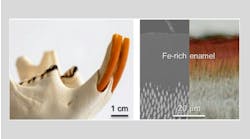American Academy of Periodontology encourages patients with diabetes to maintain periodontal health, receive appropriate care
CHICAGO, Dec. 17, 2013 — A recent study published in the Journal of the American Medical Association (JAMA) found that nonsurgical treatment of periodontal disease does not improve glycemic control in patients with type 2 diabetes. Despite these results, the American Academy of Periodontology (AAP) continues to encourage patients with diabetes to maintain periodontal health and receive appropriate treatment for any periodontal disease.
RELATED |New clinical recommendations from AAP encourage comprehensive periodontal evaluations for people with diabetes
Dr. Stuart J. Froum, DDS, president of the AAP and clinical professor and director of clinical research in the Department of Periodontics and Implant Dentistry at New York University Dental Center, says the findings should not dismiss an association between periodontal disease and diabetes.
"As a number of population studies suggest, there is indeed a relationship between diabetes and periodontal disease. While this study specifically focuses on basic nonsurgical periodontal care, some cases of periodontal disease require more intensive treatment. There is evidence that more intensive periodontal therapies can be effective in glycemic control."
FURTHER READING |A review of nonsurgical periodontal therapy
Periodontal disease, or gum disease, is an inflammatory condition that can damage the tissues and bone surrounding the teeth and can eventually lead to tooth loss. In addition to diabetes, periodontal disease has been linked to other systemic diseases, including cardiovascular disease, rheumatoid arthritis, and Alzheimer's disease. Nearly half of US adults aged 30 and over suffer from some form of periodontal disease.
FURTHER READING |How effective are locally delivered antibiotics?
The study examined the impact of nonsurgical periodontal therapy on more than 500 subjects with both type 2 diabetes and moderate to advanced chronic periodontitis. The subjects' glycated hemoglobin (HbA1c) levels were assessed at three- and six-month intervals. Researchers found that compared to those who did not receive treatment, subjects that underwent nonsurgical periodontal therapy showed no difference in hemoglobin levels, suggesting no difference in glycemic control.
"It is important to note that the nonsurgical therapy employed in this study did not eradicate periodontal disease, which may be why researchers did not see an effect on glycemic control," points out Dr. Froum. "A major indicator of periodontal disease — bleeding on probing — decreased only 19%, suggesting that the nonsurgical therapy was not successful in controlling moderate to advanced periodontal disease. The failure to eliminate periodontal disease may be why glycemic control was not impacted."
Regardless, Dr. Froum is optimistic that this study may lead to a better understanding of the relationship between diabetes and periodontal disease.
"I'm excited to see research that continues to explore the association between these two chronic, and highly prevalent, diseases. These findings are simply one piece of a complex puzzle that opens the door for further investigation."
According to the AAP, patients with diabetes should receive an annual comprehensive periodontal evaluation, which includes a thorough assessment of periodontal health and any risk factors for disease.
"Every patient requires an individualized treatment plan," says Dr. Froum. "For patients with diabetes, this may include either nonsurgical periodontal care or more advanced treatment. I encourage all patients living with diabetes to talk with their dental professional about their unique periodontal health."
For more information, visit perio.org.
SOURCE: PRNewswire-USNewswire
Latest
Latest





